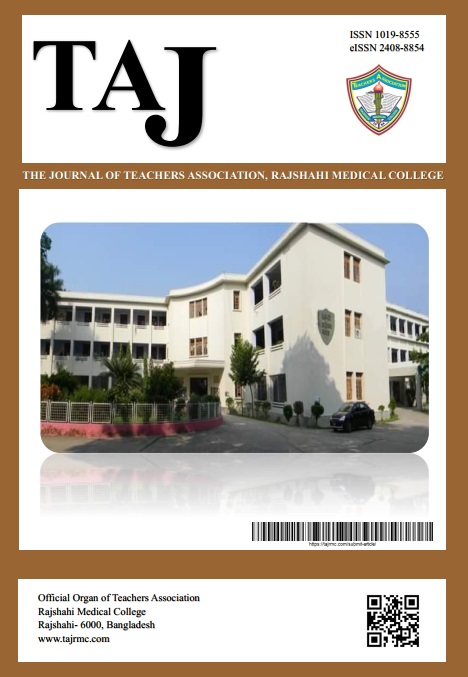| The Role of Serum Albumin Concentration in Predicting Surgical Site Infection After Cesarean Section: A Longitudinal Analysis |
| Mamuni Sultana, Bayzid Mostafa |
| https://doi.org/10.62469/taj.v037i02.020 |
| Pdf Download |
Background: Cesarean section (C-section) is a common surgical procedure associated with risks of surgical site infections (SSIs) and delayed wound healing. Objective: This study aims to evaluate the role of serum albumin concentration in predicting SSIs and wound healing outcomes after C-sections. Method: A longitudinal analysis was conducted on 122 pregnant patients undergoing C-sections at the Department of Obstetrics and Gynaecology, Dhaka Medical College Hospital, between January and December 2020. Preoperative serum albumin levels were measured, with hypoalbuminemia defined as < 3.5 g/dL. Patients were categorized into groups of hypoalbuminemic (Group I) and normal albuminemic (Group II). Postoperatively, patients were monitored for 60 days to identify SSIs and signs of delayed wound healing. Result: The mean preoperative serum albumin level was 2.57 ± 0.35 g/dL in Group I and 4.2 ± 0.4 g/dL in Group II, with a statistically significant difference (p < 0.05). In Group I, 9 out of 19 patients (47.4%) developed post-cesarean wound infections and delayed wound healing, compared to 7 out of 103 (6.8%) in Group II. The risk ratio for wound infections and delayed healing in hypoalbuminemic patients was 6.97 (95% CI: 3.00-16.20), indicating a significantly higher risk in Group I. The length of hospital stay was longer for Group I (10.2 ± 2.1 days) compared to Group II (7.5 ± 1.8 days). The readmission rate was higher in Group I, with 1.5% of patients requiring no readmission compared to Group II. 47.4% of Group I experienced complications, compared to 6.8% in Group II, highlighting a substantial disparity. Conclusions: Preoperative hypoalbuminemia is a significant predictor of SSIs and delayed wound healing in patients undergoing C-sections.

